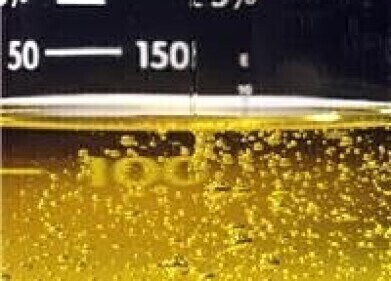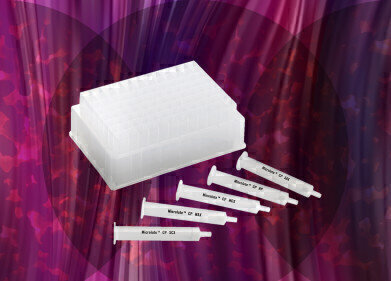-
 The 35S-biotin enzyme cofactor can be purified with affinity chromatography
The 35S-biotin enzyme cofactor can be purified with affinity chromatography
Solid Phase Extraction (SPE)
Affinity chromatography 'produces 35S-biotin enzyme cofactor'
Oct 13 2010
Researchers at the Johns Hopkins Bloomberg School of Public Health in Baltimore explain in BMC Biotechnology that isotopes of sulphur, hydrogen and carbon have been used in the past to track the enzyme cofactor's metabolic origins, as well as how it attaches to proteins.
However, labelling it with the 35S isotope has resulted in predominantly oxidised biotin species in some cases.
Other problems have included low specific activity of the produced biotin, along with a generally low yield.
Using affinity chromatography to purify biotinylated Plasmosium falciparum (PfBCCP-79), followed by acid hydrolysis to liberate free biotin, the scientists were able to demonstrate the efficacy of the process.
The purified PfBCCP-79 was obtained with high yield, expressed at high levels and seen to be soluble.
BMC Biotechnology provides open-access research into manipulating biological entities in order to use them in experiments.
Digital Edition
Chromatography Today - Buyers' Guide 2022
October 2023
In This Edition Modern & Practical Applications - Accelerating ADC Development with Mass Spectrometry - Implementing High-Resolution Ion Mobility into Peptide Mapping Workflows Chromatogr...
View all digital editions
Events
ACS National Meeting - Fall 2024
Aug 18 2024 Denver, CO, USA
Sep 04 2024 Chiba, Tokyo, Japan
Sep 04 2024 University of Warwick, Coventry, UK
Sep 10 2024 Rockville, MD, USA
Plastics Recycling World Expo Europe
Sep 11 2024 Brussels, Belgium













